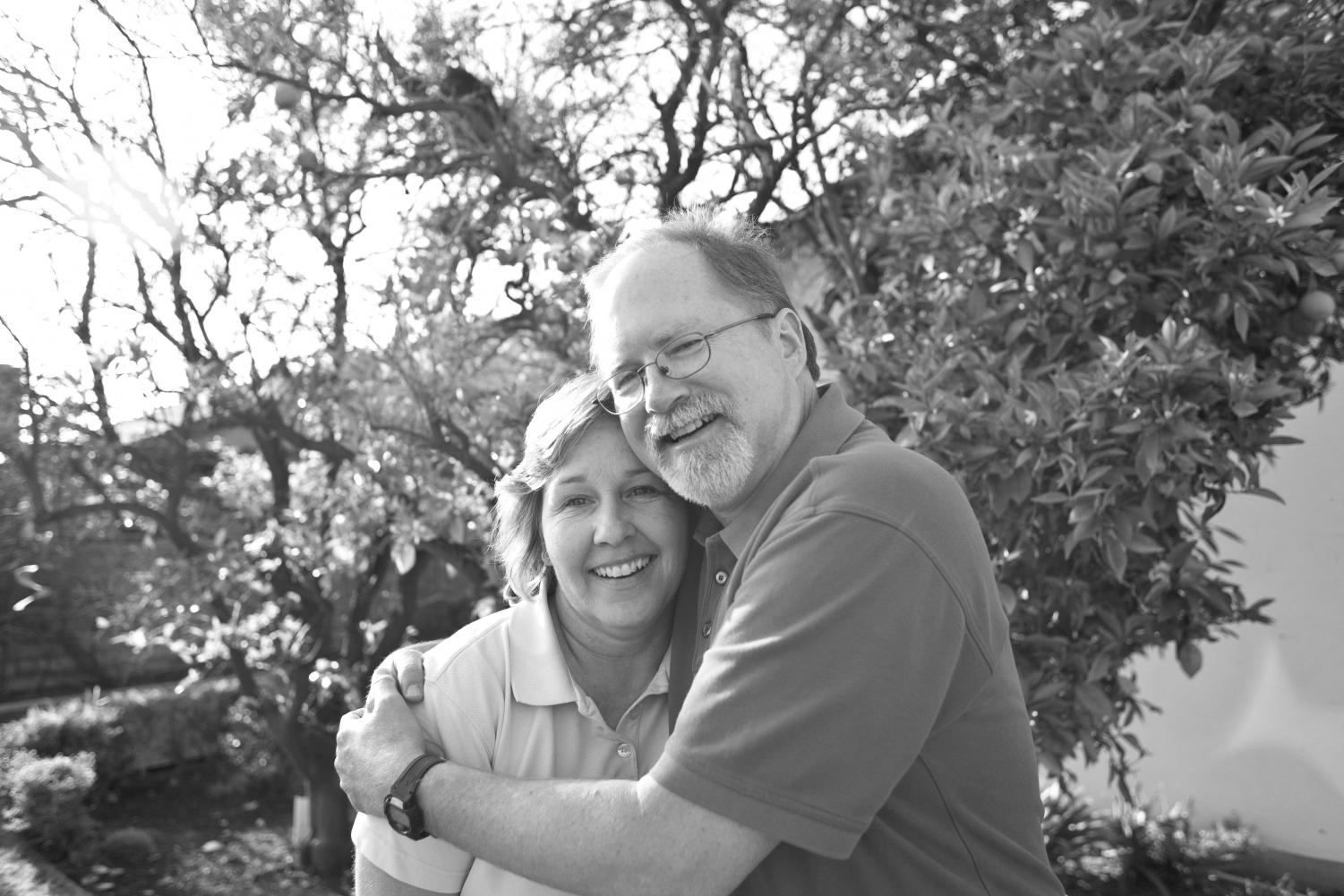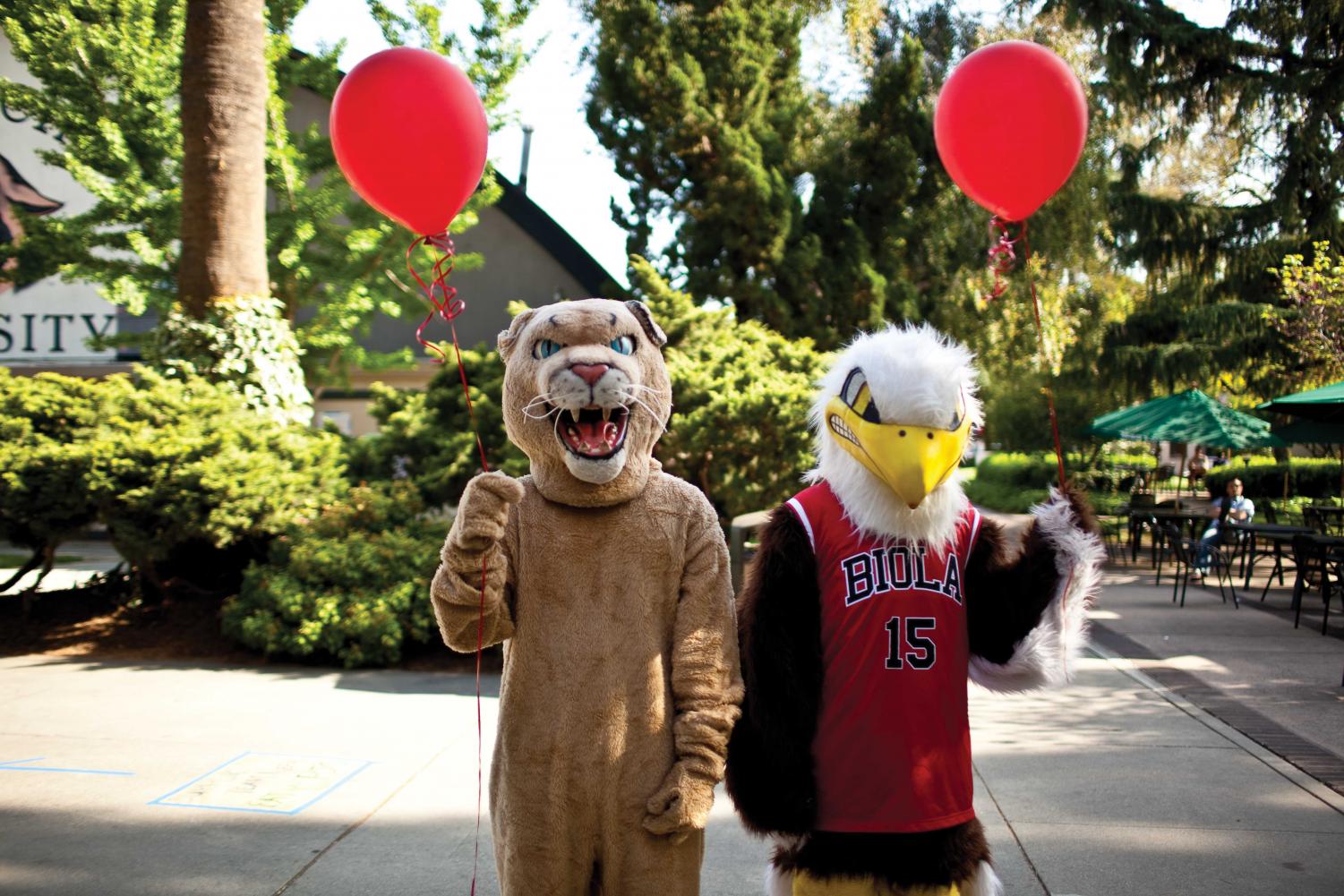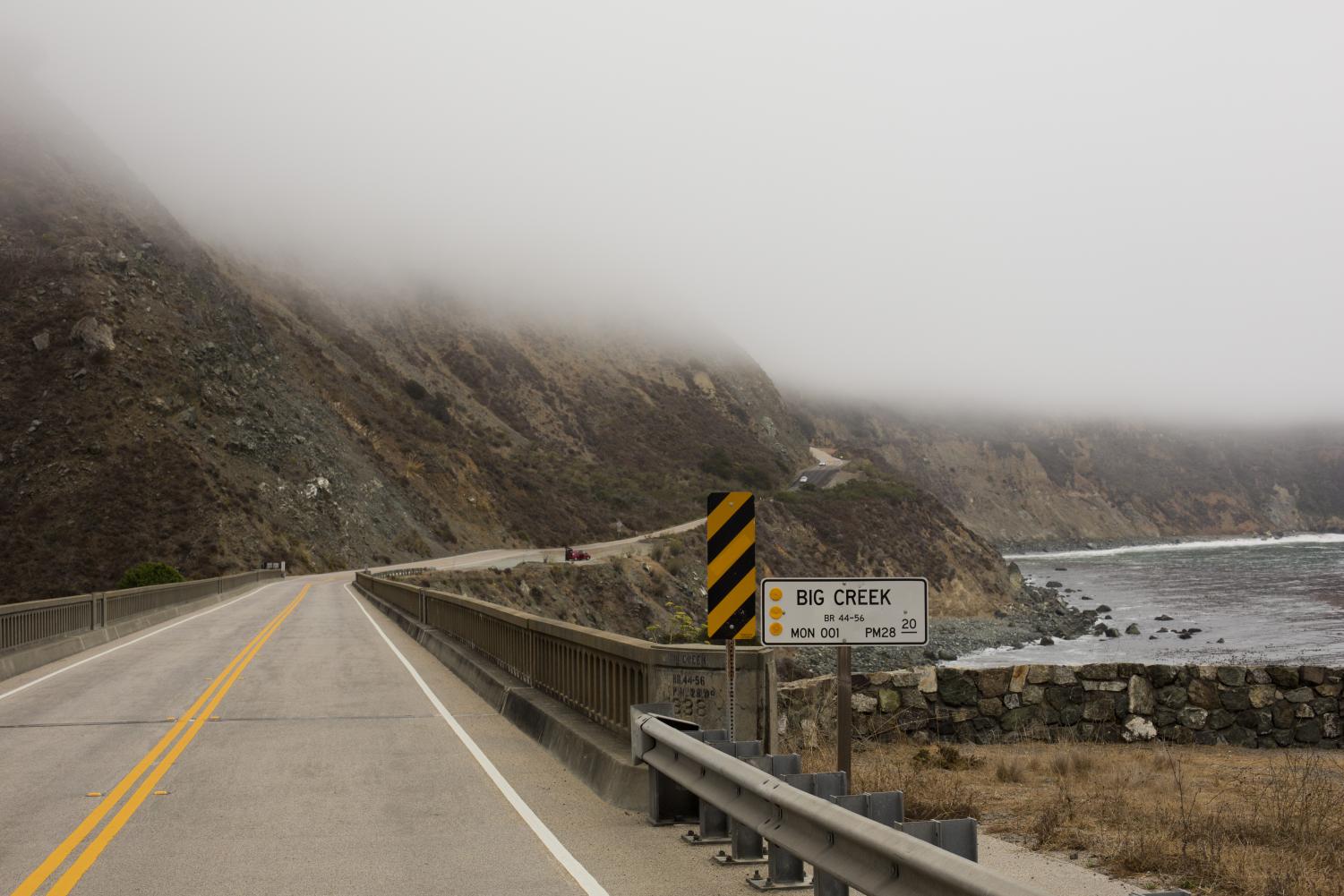Written by Bethany Cissel
A LIFE (holding on)
March 3, 2009. Fullerton, California. We pray and find the right house number. A warm, friendly face steps into the frame of the front door. A hand gesturing to come into the house: handshakes and names, “please sit down.” Small talk. Breaking ice. The phone rings, and a conversation takes place in the kitchen. Outside, feet are shuffling upon the pavement. “Left foot first, left foot first” can be heard from the living room. A pink support belt and a walker prop the man scooting outside. The questions begin, and Jim and Miriam Mohler tell me their story of how cancer has changed their lives.
The Mohler Family from The Point on Vimeo.
BEFORE (ministry and magic tricks)
Jim and Miriam talk about how they met at Biola University back when they were students. The two played in symphonic winds. Miriam recalls Jim as gregarious and outgoing. He had a quick wit, lots of puns and a love for performing magic tricks.
Not much has changed since then. The conversation casually swerves to their similar calling. Miriam comments that they have “a similar sense of purpose in ministry” and both have always wanted to pursue God full time in ministry. They dated for a year and a half. After an engagement at Newport Beach on Christmas, two lives became one and the pair felt called to junior high ministry.
“Naturally, we can do this as a team,” Miriam recalls thinking, looking back at their nine years of ministry in Scottsdale, Arizona.
They felt led to Trinity College in Illinois where Jim served on various boards and taught a youth ministry course in the Christian Education and Bible department. They were called to come back to their alma mater in 2006, and Jim became chair of the department of Biblical and Theological Studies, where he served until February 2010.
DURING (left foot first)
A lagging foot and a drooping face — early symptoms indicated something wasn’t right. An MRI on Feb. 26, 2009 revealed three cancerous tumors in Jim’s brain. His functions quickly deteriorated, causing him to need a walker, support belt and cane. His speech slowed and the magic tricks weren’t on cue. He became co-chair of the Biblical and Theological Studies department with professor Dave Talley, and left a void in the Biblical Interpretation and Spiritual Formation classroom.
Chemotherapy. Walking therapy. The questions started flooding in through Facebook, and Miriam decided to use their blog, CaringBridge, to update friends and family about their status. Phones rang continually, and concerned friends provided meals.
Jim reflects upon their hope during this time of need and says, “The things that have gotten us through this, I think, is that God has blessed us with an enormous amount of friends, people that have expressed care.”
Jim also says that reconnecting with old friends has been an important aspect of the CaringBridge blog.
“That’s been, for me, one of the biggest blessings, reconnecting with people from my youth group, family and friends I haven’t seen since high school. Miriam’s CaringBridge thing, I don’t know how many hits that thing has.” Jim pauses and laughs. “It’s mind boggling to me.”
The blog has more than 57,000 hits, and the numbers continue to climb.
“People send notes, which has been real kind, on CaringBridge or even on Facebook,” Jim says. “They’ll thank me for being a youth pastor. In the process, they’ll give us a specific about what we mean to them. Often as a pastor you don’t get that; you don’t find out until you’re gone, so that’s been really a blessing, to know specifically how we’ve impacted some people. That’s helped us get through.”
NOW (learning to be ready to die at any time)
Feb. 25, 2010. It has been a full year since the cancer hit. Jim and Miriam begin reflecting on the past year.
What has changed? Where is your family now? What has happened in the last year?
The chemotherapy has officially ended, and the tumors have not grown. Jim walks two to three miles a day free from support. Their story is ongoing, and they talk about the here-and-now as well as the promising future.
BEYOND (we’re all going to have a funeral)
Their mindset, Miriam explains, is still day-to-day. So much has changed in one year, and timing has played an important part to their story.
“I’m learning to trust Him in everything,” Jim shares. “The timing isn’t my timing, but God’s in control. I wouldn’t have chosen to get cancer at all, much less how long the healing process takes.”
Miriam talks openly about eternity, explaining that “this” is not why we are here.
“When you live in light of eternity, it changes your perspective,” Miriam says. “It’s not about us; it’s not about now … We’re actually in the land of the dying; we’re going to the land of the living. This is going to be nothing by comparison.”
The Mohlers do not know what the future looks like, in terms of jobs, finances and Jim’s physical status and abilities.
Jim shares willingly about his hopes for the future.
“I look forward to when the doctor says, ‘Well, we don’t see any tumors anymore.’ And I don’t know if that’ll ever happen because of the kind of tumors they are,” Jim says. “But part of that, is that a lot of people just assumed that I was almost on my deathbed. That’s been a surprise. When people see me, they say, ‘You look good.’ They were expecting not that. I can’t help what they expect.”
Jim and Miriam believe every day is a gift from the Lord and live one step at a time. Miriam shares about the importance of not worrying about the day-to-day.
“I think one of the things about living with a life-threatening illness is that you learn every day is a gift,” Miriam says. “You only have today. You don’t have any guarantee about tomorrow, like it says in James … You can make plans but you have to live in the now or you worry. You have to live in the now because that’s what you have.”
The Mohlers have embraced many of the gifts God has given them in recent days. Miriam talks of a recent trip to Scottsdale that consisted of co-preaching and reconnecting with old friends. The two also took a trip to Alaska with good friends during the summer. They made the trip to the Mariners Safeco Field and checked another baseball stadium off their list.
Jim explains that he looks forward to being able to do many things again such as driving on the freeway.
“I’m looking forward to playing my trombone, continuing to work on my magic skills,” he says.
At the end of our time, Jim pulls out his magic trick case and happily shares a few of his perfected performances. He finds the card that I pulled from the deck in his hat as well as the card that was originally pulled from an invisible deck.
Jim has not lost his magic touch.
Miriam shares the example of how a dog knows his master’s voice and is excited to hear it, even if it doesn’t know what’s on the other side of the door.
“We should be excited to hear our Master’s voice whenever He opens the door to heaven,” Miriam says. “It’s a word picture of trust. God is good all the time and forever, and we can trust Him even when we don’t know what’s coming.”




